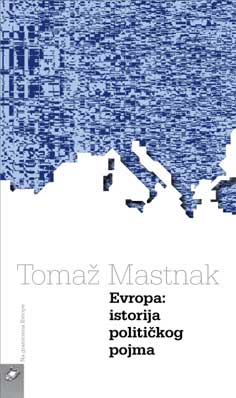
We kindly inform you that, as long as the subject affiliation of our 300.000+ articles is in progress, you might get unsufficient or no results on your third level or second level search. In this case, please broaden your search criteria.

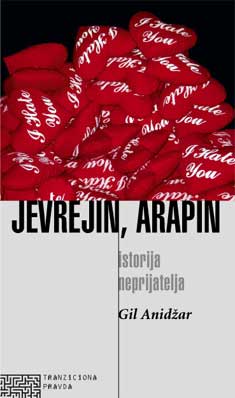
Is there a concept of the enemy? To what discursive sphere would it belong? Or, if there is no concept of the enemy, what are the factors that could have prevented its articulation? Following the reflections of Carl Schmitt and Jacques Derrida on the theologico-political, and reading canonical texts from the Western philosophical, political, and religious traditions, the author seeks to account for the absence of a history of the enemy.The question of the enemy emerges in this book as contingent on the way Europe has related to both Jew and Arab as concrete enemies. Moreover, the author provocatively argues that the Jew and the Arab constitute the condition of religion and politics. Among the many strengths of the book is the timeliness of its profound study of contemporary actuality: the volume provides a basis for a philosophical understanding of the forces at work that produced and kindled current conflicts in Europe, the U.S., and the Middle East.
More...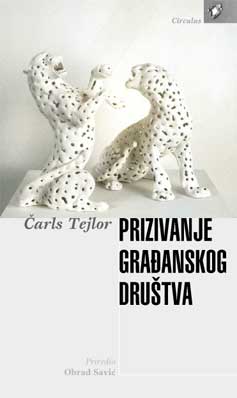
I am very pleased that this collection of my papers, edited by Obrad Savic, is appearing in Belgrade. Work of this kind positively calls out for translation and publication in a new context. I hope that the fact that I come at familiar questions from an unfamiliar angle might be helpful to some readers. And even more, I hope that the reactions to and criticisms of this highly partial work will eventually help me to think about these matters more effectively. I think of this publication as one move in an ongoing exchange, which I hope we will one day be able to continue through meetings and other publications. I am of course aware of the difficult times and struggles which Serbian society is now going through, and I know that the experience of those who are working there for democracy and human rights, however dismaying to them, will have something to say to all of us. (Charles Taylor, Introduction)
More...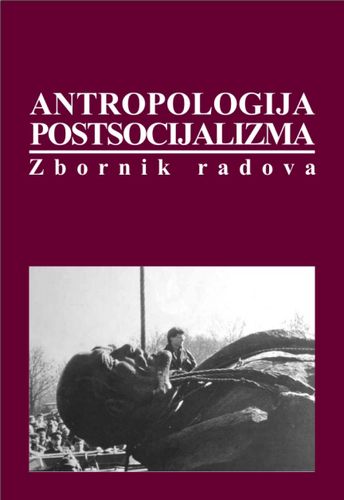
Media propaganda utilizes and revitalizes myths for their ability to generate nationalism. Prophesies or statements by psychics in the media, instigate and participate in the construction and reconstruction of mythologies of the Serbs in a new historical position. In this paper on the basis of discourse analysis of media propaganda, its usage in the social and political context of the nineties, is emphasized. In the prophecies, rhetoric mythical motives are being utilized: myth of the martyr and the destiny of the Serbian people as victims of a curse; the distinctions of the nation in regards of the supernatural and Para psychological motives; myth of the "golden age" that is mostly associated with the rule of Milosevic, widely considered to be the capable of leading the Serbs back to their past glory. The prophecies legitimize the existing relations of government and political dominance, construct new, or reinterpret old myths, ascribing to them new political functions that represent an element of the vital, national "mythologies of survival and identity". The usual methods of propaganda in the prophetic messages of psychics are being analyzed, and their instrumentalisation for the propagation of a model of thought magic, that is dogma free, but which relies on the psychology and the fear, are pointed out.
More...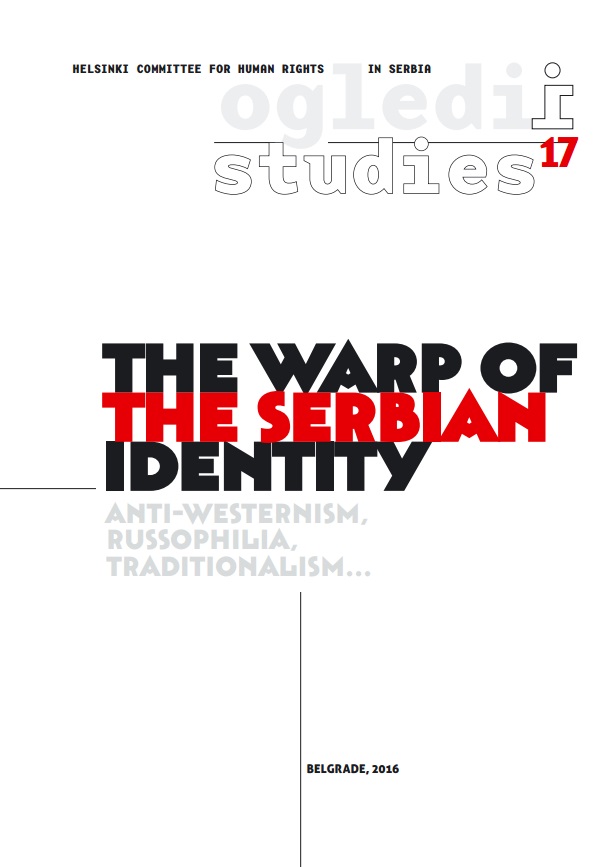
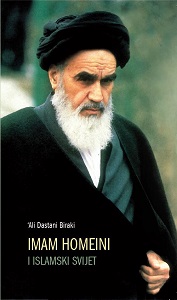
In the vision of Imam Khomeini, r. a., Islam is a world religion that spreads the shadow of its grace over all parts and regions of the world. The Imam’s ideas and words, inspired by the Qur’an, hadith, and sublime Islamic teachings, are life-giving teachings whose primary task is to meet the needs of society, solve social problems, and ensure worldly and otherworldly happiness for peoples. With his broad insight, Imam Khomeini considers the problems of all Islamic societies a common and unique pain, for the elimination of which we must act jointly and comprehensively. He is convinced that the backwardness of Islamic countries in economic, technological, social and cultural terms stems from the old concept of imperialism and colonialism, and cannot be overcome except by a divine movement aimed at awakening and raising awareness of all Muslims, Shiites or Sunnis. (text by the editors)
More...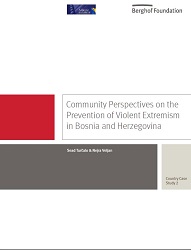
The purpose of this research was to identify common and distinct factors of resilience or vulnerability to violent extremism in Bosnian communities as well as the influence of key actors on those factors. Cantons selected as case studies had the highest number of parajamaats and foreign fighter departures, such as Sarajevo Canton (SC) and Zenica-Doboj Canton (ZDC), or had no parajamaats or departures, such as Bosnian-Podrinje Canton (BPC). The research sought to answer three main questions: 1) What are key factors of community resilience or vulnerability, and what factors are linked to the development of violent extremist beliefs by individuals and groups and the choice to join foreign violent extremist groups? 2) Which key actors influence community vulnerability or resilience to violent extremism, and how do they shape such dynamics? 3) What is the impact of existing PVE programmes and initiatives in BiH on factors of community vulnerability or resilience to violent extremism? Researchers also wanted to determine: What are the primary entry points for PVE programming and response in BiH? And what crossover exists between PVE activities and peacebuilding and reconciliation efforts in BiH? This research identified several factors and actors that contribute to the degree to which certain communities in BiH have been affected or unaffected by radicalisation. The history of the 1992–1995 war has especially played a decisive role in shaping post-conflict radicalisation processes. This is true both in terms of how wartime actors and activities sowed the seeds of the Salafist movement in BiH and how wartime networks in certain communities increased the likelihood of investment by specific foreign actors in the post-war period. While researchers found that all these communities share some characteristics, including a lack of trust in institutions and a sense of uncertainty about the future, the main differences between affected and unaffected communities are linked to the war.
More...
U razvojnim tokovima srpske filozofske i teološke misli – kao i političke ili društvene misli – organska ili organicistička misao svakako nije neka nepoznata komponenta. Dok je srpska liberalna ili socijalistička misao – posebno kasnije marksistička misao – relativno dobro sistematizovana i proučena, organicistička misao je ostala na neki način po strani i reklo bi se da nije privukla pažnju kakvu nesumnjivo zaslužuje. Kada je već osamdesetih godina XX veka došlo do sloma mnogih idejnih tokova i političkih koncepata, zanimanje za srpsku organicističku misao ne samo da je poraslo već je ona doživela neku vrstu renesanse – barem njeni sledbenici tako kažu – i iznova je postala aktuelna. Verovatno je to bio razlog mnogih nesporazuma oko definisanja i redefinisanja te misli, posebno nesporazuma oko termina koji bi bili najprikladniji. Ta misao se u nekim slučajevima određuje u krugu filozofske misli kod Srba, u drugim pak, što je ispravnije, ona se izučava uporedo sa drugim tokovima misli. Uglavnom nedostaje njeno sistematičnije izučavanje, iako su neka istraživanja do sada dala solidne rezultate. Sve do danas, međutim, mogu se sresti neke definicije naglašeno ideološki intonirane, što naravno smeta u pokušajima njenog pravilnog definisanja. U drugim kulturama – kod Rusa i Francuza, posebno – tih problema, reklo bi se, nema. Kada E. Sioran određuje prirodu utemeljivača francuske organicističke misli, on svom radu daje podnaslov Esej o reakcionarnoj misli.
More...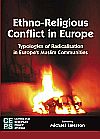
This book comes from a large research endeavour of the European Union’s 6th Framework Programme, called ‘Microcon’, standing for the micro-foundations of violent conflict. In its entirety, Microcon consists of 28 component projects undertaken by 22 research centres across Europe, under the coordination of Sussex University. The Microcon website (www.microconflict.eu) gives a full account of participants, objectives and results. The project runs from 2007 to 2011.This book addresses the greatest source of societal tensions and violent conflict in contemporary Europe, involving people from minority groups of Muslim culture. Six country case studies – on Belgium, France, the Netherlands, Spain, Russia and the United Kingdom – give a comprehensive account of Islam-related tensions and violence, from the jihadist terrorist acts seen in Europe in the aftermath of 9/11 in the US, through to the urban riots of the type seen in France in 2005. These events are analyzed with a common typology together with detailed accounts of the social context in each country. Also included is an interpretation of the fundamental nature of the Islamist terrorism in Europe, with the outline of a strategy to repel it. The book is a unique source for those seeking to understand the nature of ethno-religious violence in contemporary Europe.
More...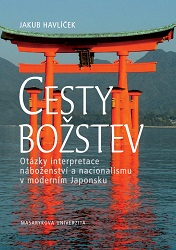
The monograph “Gods’ Ways. Interpreting Religions and Nationalism in Modern Japan” deals with the role of religious phenomena in the process of forming the national identity in modern Japan, with the problem to identify and interpret these phenomena. The introductory chapter is concerned with the issue of defining the theoretical and methodological frame of the thesis. It characterizes the study of religions as a critical social science. Referring to Jonathan Z. Smith, the author deals with the concept of religion as with an analytical category and treats this concept as a social construction originating in the context of Western, Euro-American culture. The thesis is also occupied with the questionof identifying religious phenomena in the context of Japan. It deals with the theories of secularization, with the process of defining religious and secular domains, as well as with the concepts of nation in social sciences. It concerns the subject of implicit religions, finding the theories of implicit religions to be rather vague and inadequate for analyzing religious phenomena in modern Japan. In the conclusion to the chapter, the author proposes the definition of “religion” based on Benson Saler’s concept of tracing “family resemblances” of the phenomena classified as religious. Second chapter deals with the topic of interpreting and systematizing religious phenomena in Japan. It concentrates on the concepts of Shinto and Japanese religion in the works of H. Byron Earhart, Karel Werner, Thomas P. Kasulis, Joseph M. Kitagawa, and Isaiah Ben-Dasan.
More...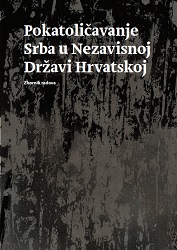
Tema pokatoličavanja srpskog pravoslavnog stanovništva u Nezavisnoj Državi Hrvatskoj predmet je višedecenijskog interesovanja istraživača istorije Jugoslavije tokom Drugog svjetskog rata. Iako su prethodni istraživači svojim istraživanjima obuhvatili mnoge aspekte ove teme, zbornik naučnih radova koji je pred čitaocima predstavlja najobuhvatniji pregled teme na osnovu izvora koje prethodna istoriografija nije konsultovala ili ih nije dovoljno analizirala. Zbornik radova Pokatoličavanje Srba u Nezavisnoj Državi Hrvatskoj sastoji se iz pet naučnih radova. Naučni radovi nastali su kao rezultat istraživanja u osam arhivskih ustanova u Hrvatskoj i Srbiji i pregleda dvadesetak arhivskih fondova. [...]
More...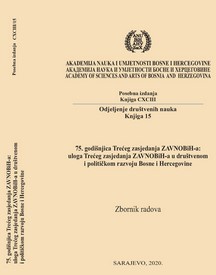
Naučni odbor je pripremio autorske referate za učesnike Okruglog stola “75. Godišnjica Trećeg zasjedanja ZAVNOBiH-a: uloga Trećeg zasjedanja ZAVNOBiH-a u društvenom i političkom razvoju Bosne i Hercegovine” za štampu. Program Okruglog stola sastojao se od uvodnih obraćanja i 14 referata. Redoslijed radova u ovom zborniku u najvećoj mjeri slijedi redoslijed izlaganja referata pripremljenih za Okrugli sto, koji se trebao održati krajem 2020. godine, međutim zbog nezahvalne epidemiološke situacije izazvane virusom COVID-19, nije bilo mogućnosti njegovo održavanje. Akademik Ivo Cvitković je naglasio da većina pripadnika pokreta nisu bili komunisti, ali su oni bili organizatori antifašističke borbe. Postavio je sljedeća pitanja: za šta se borio NOP, politika NOF-e; uvođenje zvanja vjerskog referenta, primjeri odnosa narodnooslobodilačkog pokreta prema slobodi religije, sloboda vjeronauke i osnivanje “vjerske komisije”? Posebnu pažnju je posvetio religiji i crkvi na Trećem zasjedanju ZAVNOBiH-a i pitanjima: vjerski službenici, diskusije u kojima se kritički osvrtalo na religiju i religijske zajednice, biranje sveštenika u ZAVNOBiH, gdje je pošlo “ukrivo”, zašto je došlo do promjena odnosa prema religiji i crkvi i začeci netrpeljivosti?
More...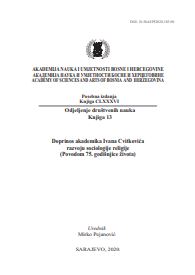
1. Sociolozi o Cvitkovićevom doprinosu sociologiji religije 2. Kritičari o knjigama Ivana Cvitkovića 3. Bibliografija radova
More...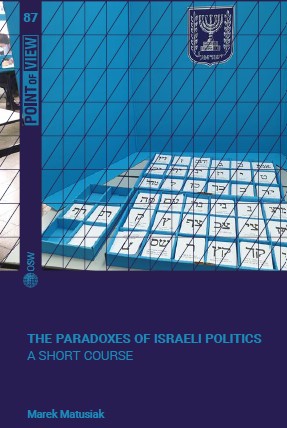
Israeli political life and, more broadly, the way the state operates, are often difficult to understand for the European observer. There are at least four reasons for this state of affairs. First, Israel’s political scene includes many elements that do not exist outside it and for whom analogies are difficult to find. Second, institutional, constitutional and political similarities to European countries are often incomplete and sometimes even misleading. Third, the Israeli reality is characterised by a considerable number of paradoxes, within which phenomena irreconcilable from a European perspective coexist. Fourth, the country’s politics routinely invokes contexts that are highly symbolically and emotionally charged, which paralyse the external observer with their gravity.
More...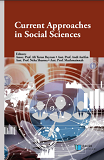
Technological developments and globalization has changed human nature. This change directly affects all stages of human life. At this point, it becomes inevitable to carry out research on people and human life. All studies carried out in the field of Social Sciences aim to understand human, human life and human nature. In this work, which was put forward in order to understand the human, different studies from different disciplines were discussed and a step was tried to be built in order to reach this goal, albeit to some extent.
More...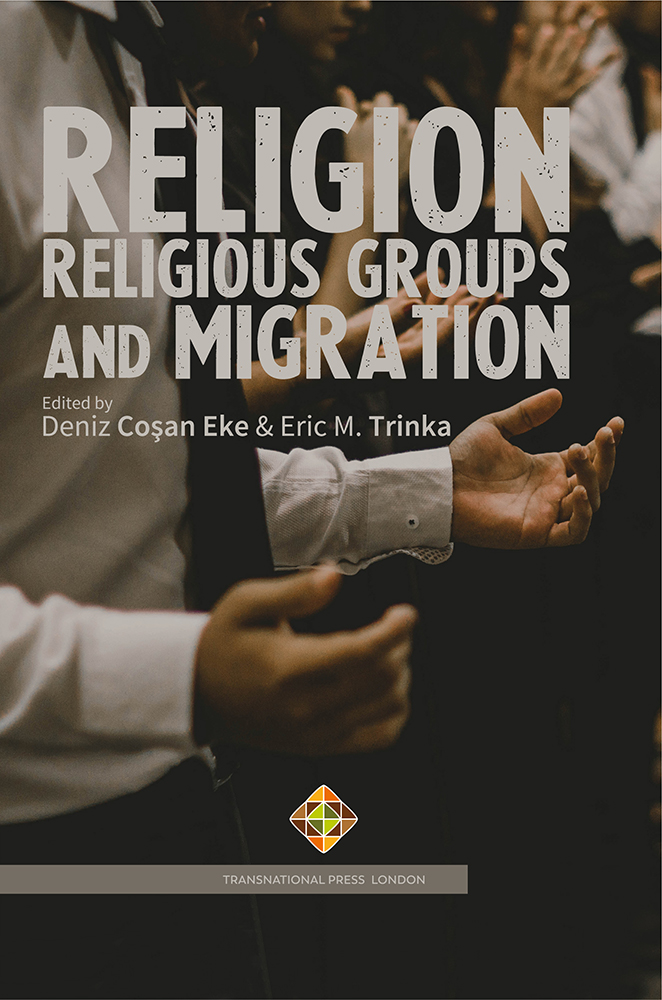
Since 2015, migration to Europe has created challenges for community relations in terms of dealing with cohesive integration and a recognition of the growing diversity within communities. In recent years, European policymakers have perceived the arrival of refugees and migrants as a challenge especially as they try to address cross cuttingissues of social cohesion, economy and health. Representations of the ‘migrant crisis’ reinforce negative perceptions of migration dynamics. One narrative, which paints the notion of the arrival of refugees and migrants since 2015 as a constant flow of people that suddenly and unexpectedly pushed at the continent’s Mediterranean borders, distorts the lived experience of migration and trivialise migration-related challenges. Focus on the frequency and scale of the migration undermines nuanced understanding of the causes, consequences and experiences of migrants and refugees.
More...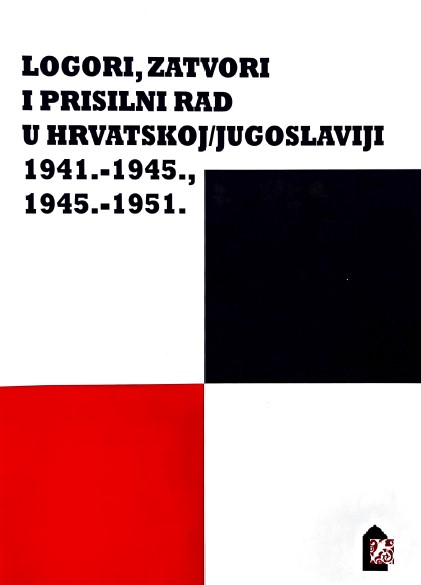
Thirteen presentations from the scientific conference "Camps, Prisons, and Forced Labor in Croatia/Yugoslavia 1941-1945, 1945-1951" held on May 12, 2009, at the Croatian Institute of History are published in this proceedings. Seven Croatian, five Serbian, and one German historian presented the results of their latest research on deprivation of freedom, camps, prisons, and forced labor during World War II and in the post-war period.
More...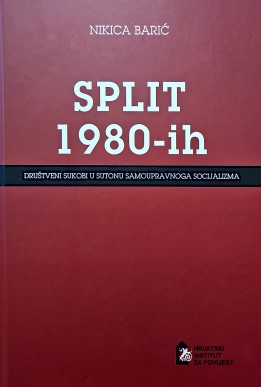
The book portrays the main political, social, and economic events and issues in the city of Split during the last decade of communist rule, from the death of Yugoslav President Josip Broz Tito in 1980 to the first multiparty elections held in 1990. It is based on extensive research of various sources, including the press, as well as archival sources, documents from the League of Communists, the State Security Service, and the then-Assembly of the Municipality of Split. The first part depicts the activities of socio-political organizations (such as party and youth organizations), the second part focuses on the economy of Split, the third part addresses specific social problems (housing, economic crime, industrial pollution), and the fourth and final part of the book deals with the regime's attitude toward Croatian nationalism, the Catholic Church, the echoes of Slobodan Milošević's "anti-bureaucratic revolution" in Split, the establishment of new political parties, and the results of the first multiparty elections in Split. The book follows the situation in Split during a decade of pronounced economic, social, and political crisis in the Socialist Federal Republic of Yugoslavia.
More...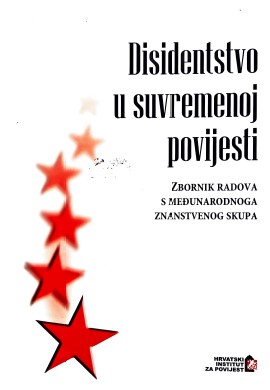
The international scientific conference "Dissidence in Contemporary History" was held on November 19, 2009, at the Croatian Institute of History in Zagreb. The conference was organized by the institute's project "Power and Society: The Communist System of Governance in Croatia 1945-1990", and the immediate impetus for its organization was given by Mr. Daniel Ivin. The organizing committee conceived of the topic of dissidence to be approached exclusively analytically, with an emphasis on the following questions: methodological problems, historical-political framework, the system in Croatia and Yugoslavia, the attitude of foreign countries towards dissidents, individuals, social groups and movements in Croatia, the relationship between politics and culture and "case studies".
More...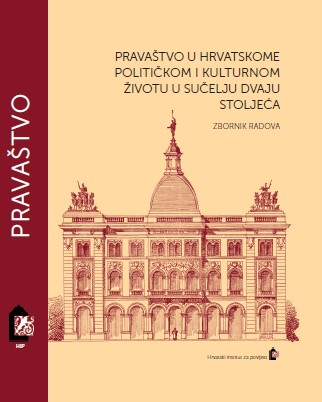
After the collapse of the political ideas that emerged from the revolutionary movement of 1848/49, a regime of neo-absolutism was introduced in the lands of the Habsburg Monarchy. During its ten-year period, the beginnings of the Pravaš ideology can be found. Ante Starčević and Eugen Kvaternik, disappointed by the collapse of the Revolution and its ideas of national and civil liberties, founded Pravaštvo as a new Croatian national integration and political ideology. In building the Pravaš ideology, its founders were inspired by the liberal principles of the French Revolution in their thinking about the Croatian state-legal tradition. Both undoubtedly emphasized the establishment of the Croatian state as their ultimate goal. During the session of the Croatian Parliament in 1861, the nucleus of the Party of Rights and its future versions was created. The representations of the renewed Rijeka County, which were accepted by its assembly and composed by A. Starčević, the great notary of Rijeka County, give the new party its first programmatic principles. All of them are contained in Starčević's fundamental idea that the Kingdom of Croatia is "completely independent of any state".
More...